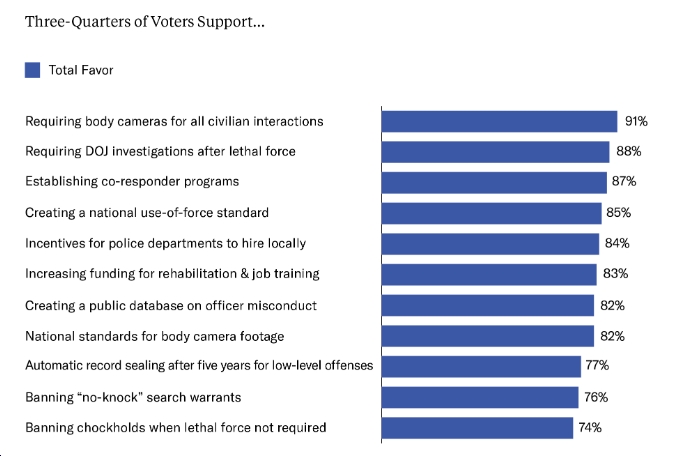By Maria-Paula
Civil rights activists say that most Virginians support criminal justice reforms, based on the results of a recent survey by Data Progress for Virginia. This is despite a contrary spread of fear in political campaigns and media houses within the commonwealth that support selective and decontextualized statistics about crime rates.
The violence prevention poll conducted in September 2021 and youth criminalization poll piloted in June 2021 represent misleading information on crime statistics, therefore, blocking efforts to build a more just and equitable criminal legal system in Virginia.
According to the data, 66% of Virginians across all political parties felt their communities are safe following recent legislative reforms of the criminal legal system which include marijuana legalization and death penalty abolition. The poll also overwhelmingly found that 82% Democratic, 70% Republican and 77% independent voters in the State all support increased funding for community-led violence prevention and prison diversion programs. They equally supported reallocation of previous death penalty budgets to petty crime programs. Also, approximately 84% of those interviewed supported an increase of alternative programs and sentencing options for youths charged with nonviolent crimes.
In a recent joint press brief, Nolef Turns executive director, Sheba Williams, Arlington County and Falls Church chief public defender and executive director of Justice Forward Virginia, Brad Haywood together with Harvard Law School’s Institute to End Mass Incarceration executive director, Premal Dharia, all spoke about how, despite widespread popular support for reforms, selective statistics about rising crime rates, false claims on protests against police violence and movements for justice are being used to spread fear and disinformation among voters across the commonwealth. The misleading crime statistics therefore block efforts to build a more just and equitable criminal legal system in Virginia.
Institute to End Mass Incarceration at Harvard Law School is a research and advocacy program that works toward the eradication of the root causes of mass incarceration, and the promotion of new approaches to dealing with harm and safety in our communities.
Nolef Turns is a community-centered leader in decreasing the prison population by supporting and empowering those who are most affected by crime, trauma, and incarceration.
Justice Forward Virginia is a non-partisan advocacy organization created to bring attention to the urgent need for criminal justice reform in the Commonwealth — at the most fundamental level — and to advance legislation for comprehensive reforms to Virginia’s criminal justice system.
“An important if not central structural obstacle is the creation and proliferation of often misleading narratives that stoke fear and play into old political tactics, and that are not often grounded in the actual needs and desires of our communities,” said Dharia
According to activists, these narratives resurface the harmful policies and claims of the 1990s, when mass incarceration exploded, and ultimately serve to shuttle more money to policing and prisons, harm communities of color and halt the momentum of widely popular criminal justice reforms.
“We cannot hope to fix our criminal legal system without addressing the way we talk about crime and public safety in this country,” said Williams. “It is crucial that reporting on crime and public safety include the necessary context so that Virginia can continue to reckon with its racist history and pave a new path forward towards a more just future.
“Media portrayals about crime can distort reality by disproportionately focusing on stories involving serious crime or solely on police reports. Three quarters of the public say that they form their opinions about crime from the news; these misrepresentations can shape the general public’s beliefs and worse, their policy decisions.”
Haywood said that after Virginia’s decades of over-policing, the state has begun investing in what communities need and residents now feel safe.
“They’re most supportive of redirecting funding from a punitive system to one that is more compassionate and empathetic. People say they hate the term ‘defund,’” he said, “but apparently they support it in reality, because this is, in its best form, what it is: taking what we’ve wasted on arrest, prosecution, and punishment and reinvesting it in the programs and services that prevent violence, addressing behavioral health and making communities more equitable.”
Virginia polls support criminal legal system reforms



